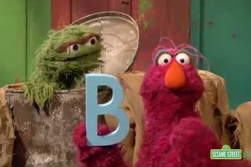
On Bisexual Visibility day the American LGBTQ Task Force ran a blog by leadership programs director Evangeline Weiss about why she no longer called herself bi but instead preferred to identify as queer.
There is a long history of bi and trans communities working together and while I know transphobia is still often found among bisexuals because sadly it's horribly prevalent everywhere, I'm not convinced at all that it's codified inside the word itself. The post has now been taken down and replaced with an apology.
| That said, it's not that I was entirely unsympathetic when I first read the blog. I am quite attached to "bisexual" as a label for myself now, but I haven’t always been. "Queer" has sometimes felt like a better fit, personally. I like how it seems to encompass more than just sexual attraction - it feels like a rejection of lots of normative ideas about sex, gender and relationships and how all of those things 'should' or are expected to work. | I'm white, middle class and reasonably financially stable. There's not a lot of risk for me in being out. |
I'm really interested in how we use words to shape and find our communities. And I'm well aware that just because people talk about "lgbt" groups it doesn't mean they're actually imagining these as anything beyond lesbian and gay. Years ago when I ran my university's lgbt group I remember someone asking me how I could be involved if I had a boyfriend. It's an attitude I still encounter occasionally. At a self-styled queer night in London last year a man told me that bisexuals don't really exist. I just laughed at him, because I've been around long enough to be sure in my own existence, but it was shock to be reminded those attitudes still exist in places I would have assumed were inclusive. When I have been to bi events I've really enjoyed knowing that there aren't assumptions being made about me. Knowing that if I hit on a girl I don't risk being threatened and if I flirt with a man I won't be told I'm a traitor. That I can talk about my past and my feelings without having to self-censor.
And I can be out. I'm privileged in lots of ways. I have a good family and I work in a supportive place with great people. I'm white, middle class and reasonably financially stable. There's not a lot of risk for me in being out. I can talk to people, write on the internet, go out wearing my handy bisexual wristband (as I joke to friends, tagging myself for easy identification!).
That's not the case for everyone so if me being able to say "I'm bisexual" helps others to find information or resources or even just feel a little less alone, that would be amazing.
Because we can still be difficult to find. I spent the afternoon in a gay bookshop and found only one book specific to (male) bisexuality.
But that is changing.
I'm not coming to this 40, 30, even 10 years ago. There's been amazing work by activists, researchers and others across the UK and the world to create spaces and communities that talk about bisexuality: the Bisexual Index; Bi UK; Bis of Colour; Bicon to name just a few.
I’m so grateful to all the people who put in the time, effort and energy to create these. It meant that when I started looking for it, I found support, solidarity, friends, and lots of fun as well. So I feel like choosing to use the label "bisexual" is also, in a tiny way, honouring some of that history and community, a lot of which I am only just learning about. If that's what the bisexual label means, then sign me up!
Squeamish Louise
This post originally appeared in Biscuit


 RSS Feed
RSS Feed
